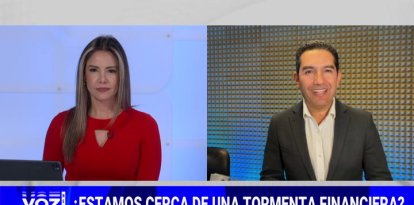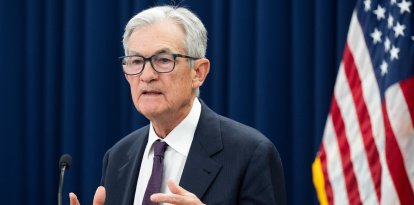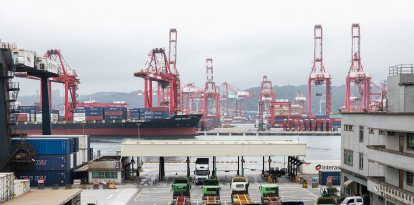International Monetary Fund warns of "risks of fragmentation of the world economy" due to geopolitical tensions
"Global economic activity is weak by historical standards (...) The pandemic, wars ... have changed the playbook for global economic relations," said Kristalina Georgieva, managing director of the IMF.

(Pexels)
The International Monetary Fund (IMF) released its "World Economic Outlook" and emphasized the current "geopolitical tensions that increase the risks of fragmentation of the global economy" in the future:
"Pandemics, wars and geopolitical tensions have changed the playbook for global economic relations." Demographic pressures and a decline in private capital formation further exacerbated the growth slowdown. Without policy interventions or technological breakthroughs, medium-term growth is anticipated to decline well below pre-pandemic levels.
"The scars of the pandemic are still with us," said Kristalina Georgieva, managing director of the IMF. She also said that "the global output loss since 2020 is around $3.3 trillion, and the costs disproportionately falling on the most vulnerable countries."
Weak growth is due to a productivity slowdown
The current study reveals that "global economic activity is weak by historical standards" and that the "medium-term outlook for global growth remains well below its historical average: just above 3%."
"Prospects for growth have been slowing since the global financial crisis. Inflation is not fully defeated. Fiscal buffers have been depleted. And debt is up, posing a major challenge to public finances in many countries. Without a course correction, we are indeed heading for 'the Tepid Twenties,' a sluggish and disappointing decade."
The main driver of weaker growth "is a significant and broad-based slowdown in productivity." The analysis highlights how low productivity "accounts for over half of the growth slowdown in advanced and emerging economies, and nearly all in low-income countries."
"Since Russia’s invasion of Ukraine, trade growth between economies in politically distant blocs has slowed by 2.4 percentage points more than trade among those that are more closely aligned. Supply chains are lengthening, with potential costs at each step."
Georgieva said that although "fiscal prudence is hard," it is necessary:
"For all countries, rich and poor, fiscal prudence is hard. This is especially true in a year with a record number of elections and at a time of high anxiety due to exceptional uncertainty and years of shocks."
























